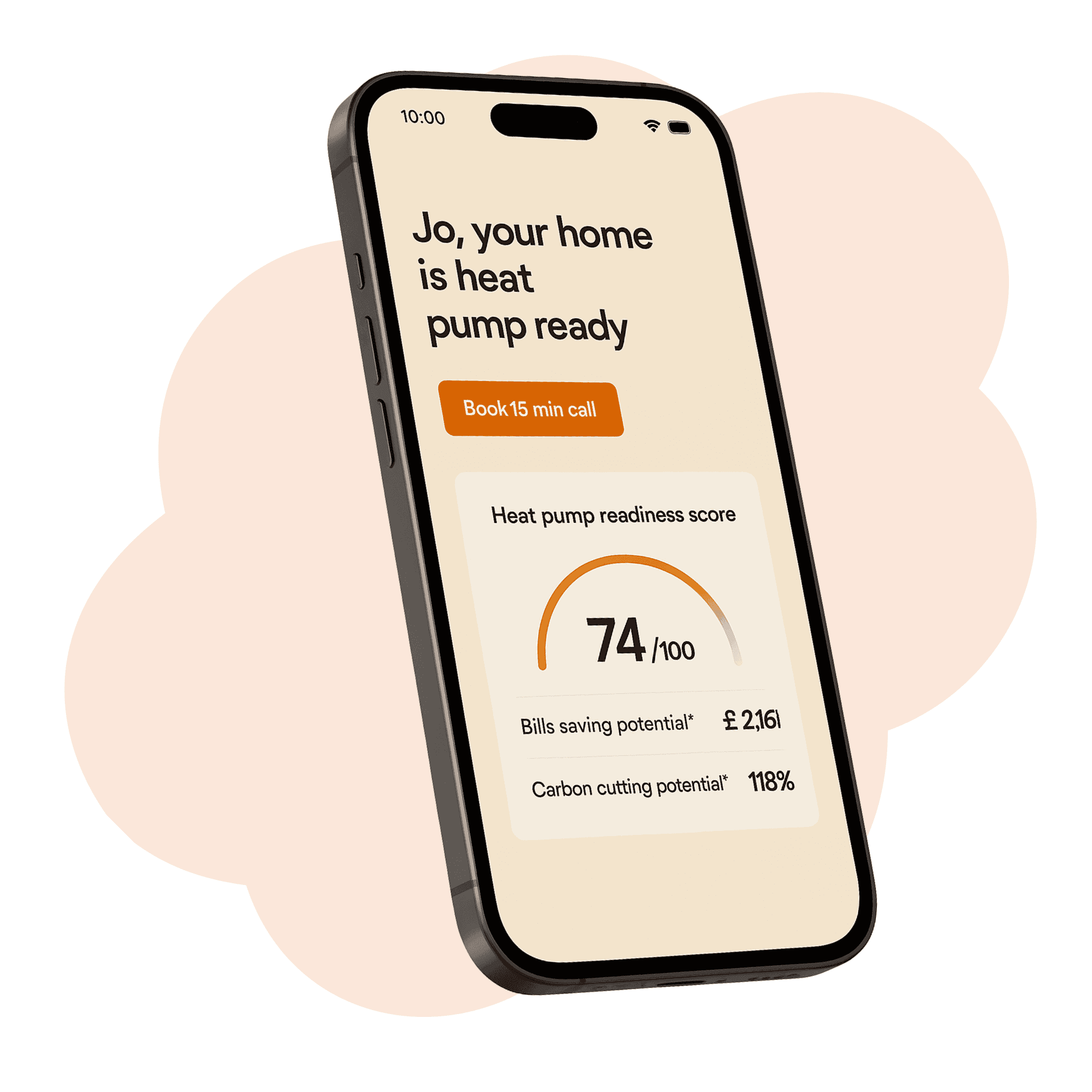


Quick summary
Small adjustments and upgrades can deliver real gas savings without replacing your boiler:
- Lower the flow temperature (combis only)
- Switch off pre-heat (combis only)
- Check your boiler’s age – most last 18–22 years, not 10–12
- Down-rate the boiler
- Adjust pump speed
- Balance the radiators
- Fit 'compensation' controls
Why improving your current boiler matters more than replacing it
Most homes already have an A-rated boiler, so replacing it with another A-rated model rarely cuts bills enough to justify the cost of a new boiler.
By contrast, efficiency tweaks cost hundreds, not thousands and many are free DIY adjustments you can make before your next service.
Quick wins you can do yourself
1. Lower the flow temperature (combi boilers only)
- Why it works: Condensing boilers only reach peak efficiency when return water is below 54°C. Lowering the flow temperature makes this happen far more often.
- Savings: 5–9% gas
- How to do it: Set the boiler to 50–60°C (lower in milder months).
2. Switch off pre-heat (combis only)
- Why it works: Some combis keep a small amount of hot water heated 24/7, firing unnecessarily.
- Savings: 3–5% gas
- How to do it: Activate eco mode or disable pre-heat in the boiler menu.
3. Check your boiler’s age before replacing
- Why it matters: Most boilers last 18–22 years with servicing, so replacing at 10–12 years wastes money and locks you into gas longer.
- Savings: Avoiding premature replacement saves £2,500–£4,000.
- How to check: The serial number usually includes the manufacture date.


Why not just replace?
- Efficiency gains from swapping one A-rated boiler for another are usually minimal
- Early replacement risks wasting £1,000s and extending your dependence on gas
- “Hydrogen-ready” labels don’t justify buying another boiler — no boilers are ready for 100% hydrogen
Efficiencies tweaks that need a heating engineer
1. Down-rate the boiler
- Why it works: Most boilers are oversized and run inefficiently. Down-rating improves modulation and reduces cycling.
- Savings: 6–9% gas
- Ask for: Reduced maximum output matched to your home’s heat demand.
2. Adjust the pump speed
- Why it works: If water circulates too quickly, it returns too hot for efficient condensing.
- Benefit: Lower return temperatures = higher efficiency.
- Ask for: Pump speed set to match your radiator circuit (NB not all boilers have an adjustable pump)
3. Balance the radiators
- Why it works: Balancing ensures each radiator gets the right heat flow, improving comfort and condensing performance.
- Ask for: Lockshield valves adjusted based on radiator temperatures.
4. Fit load or weather compensation
- Why it works: These controls let your boiler modulate rather than constantly firing at maximum.
- Savings: Up to 12% gas
- Ask for: Simple manufacturer-approved compensation controls.

Buy time, cut costs and plan your switch - get your free Warmur Report & Readiness Score.

Guides in this section
Why buying “one more boiler” rarely saves money and locks you into gas for longer.
A simple guide to when repairing your boiler is the smarter, cheaper choice.
How long should my boiler last?
Why boilers last longer than you think and how to avoid early replacement.
Cut bills without replacing your boiler
Quick efficiency wins to save money with the boiler you already have.